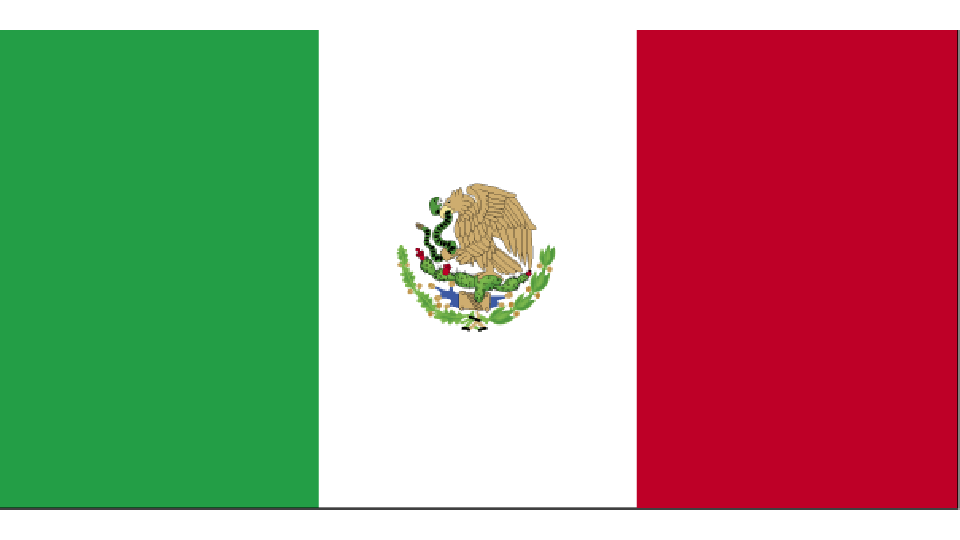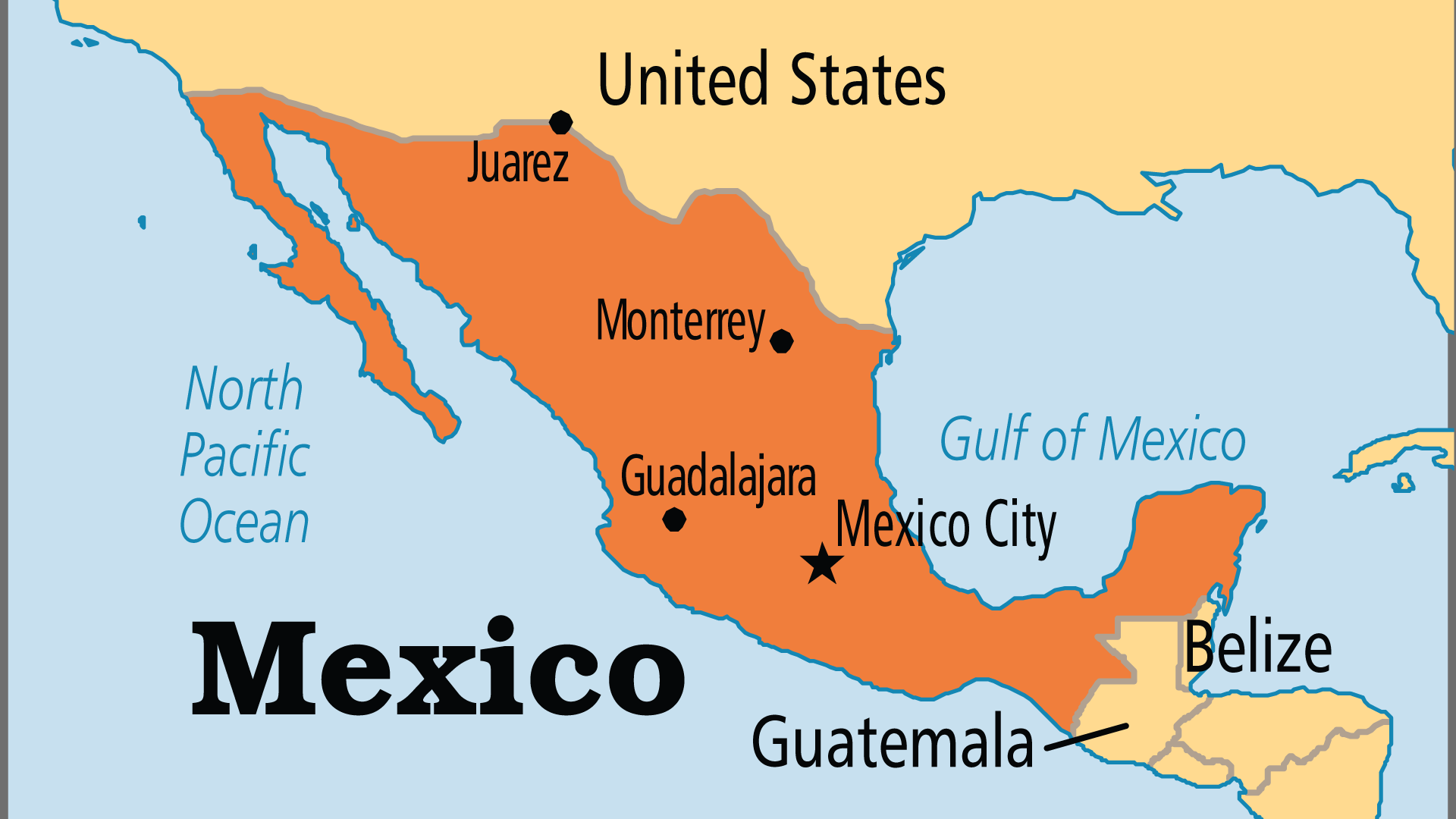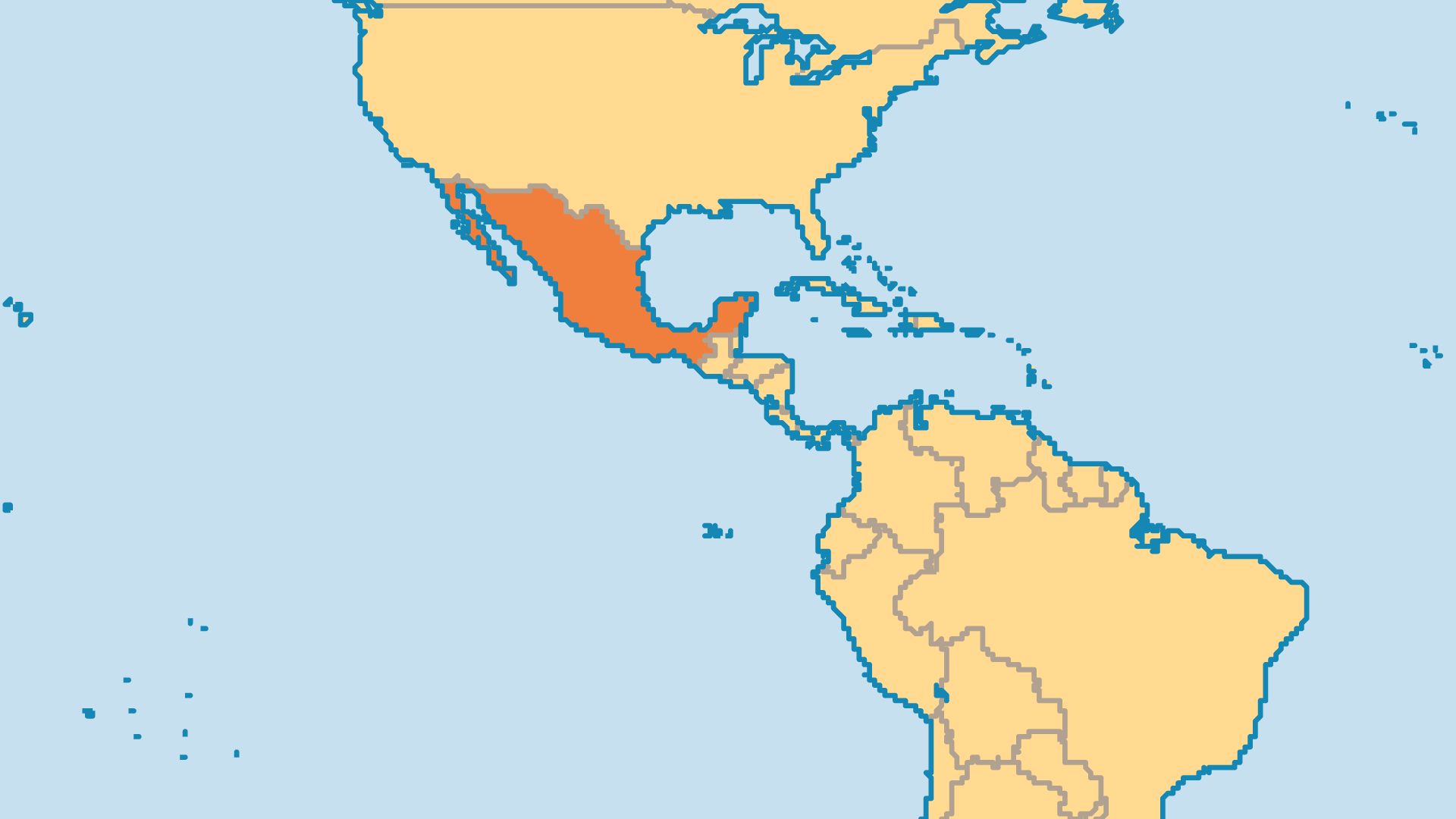Pray today
Evangelicals numbered 800,000 in 1960. They now number over 14 million, and the movement still grows! The Catholic Church oppressed ministry work in the past, but the government now gives freedom at local, state, and national levels. Both international denominations and indigenous movements grow well. The Evangelical Fraternity of Mexico (CONEMEX) works for unity and for good relations with the government. A Pentecostal fellowship also brings together the millions of Pentecostals. Large events such as the March for Jesus/March of Glory and prayer movements draw believers together. Geographical distance and broken relationships divide many families, and many are first-generation believers who need help to grow in their commitment and faith. Pray for godly church leaders, and for more pastors willing to work among the poor in rural or slum areas. City jobs and bigger churches attract many new pastors.
More
Mexico faces social and economic challenges. The government sees the difficulty of traditional solutions and now invites Christians and churches to help meet human needs. 60% of Mexicans struggle with poverty, both rural poor and slum-dwellers. Native Amerindians face greater poverty, less education, and more political unrest. Evangelical ministry among them has a good response, but also opposition. Pray that Mexicans, both indigenous and mestizo, might find their identity and purpose in the love of Christ and the purposes of God.
Immigration and labour issues. Migrant Mexican labour in California and other US border states has long been a feature of national life. They number nearly 13 million and are overwhelmingly male and predominantly young. There are many implications to their presence:
- Those apprehended trying to enter the USA number more than two million each year, hundreds of them dying in the attempt. This does not include the many who successfully evade border patrols. They are also a huge drain on US coffers via the costs of border protection.
- Those left behind. Millions in Mexico depend on earnings made by relatives who successfully find work in the USA. Downturns in the US economy impact Mexico deeply. Some towns in Mexico have almost no able-bodied men, as all have left for America.
- Those already in the USA. Many work demanding jobs for long hours and little pay. Some US states' economies would collapse without the informal economy driven by Mexican migrants. Many Mexicans also find Jesus while away from home, since there are many opportunities for them to hear the gospel. Pray for ministry in Spanish by CAMI, Avant and many denominational workers in these areas.
Ministry to young people is vital. Around one-quarter of Mexicans are aged 15 or younger. Due to its focus on youth ministry, the evangelical faith has made great inroads among young people in Mexico. This staggering challenge is being only partially met.
- University students number over 2.5 million in nearly 10,000 campus locations. Outreach is yielding exciting results. Pray for the wide-ranging ministries of Cru (on campuses and among churches). IFES-linked student movement Compañerismo Estudiantil A C (Compa) has 170 groups in 50 universities with 1,500 students served by seven full-time and 11 part-time staff and 16 volunteers. A number of Mexican-originated movements are also rapidly growing.
- Young people. Although evangelical churches appeal to the younger generation, too few churches target them; most programmes use the approaches of previous generations. Pray for creative and cutting-edge ministry to today's youth.
- Street children, especially in Mexico City. There may be up to 800,000 homeless or street children. They sleep in whatever shelter they can find and desperately need love and help.
- Child labourers. Officially, 3.6 million Mexicans under the age of 15 work, but the real figure is likely to be significantly higher. The income may be crucial to their poverty-stricken families, but many of these children drop out of school in order to work.
Foreign missionaries' roles have changed significantly. Their presence is still needed in facilitating Bible translations, mobilizing Mexicans for mission, children and youth work, theological education and leadership development. The majority are US citizens, so they need sensitivity and tact in their cultural adaptation in order to overcome perceptions arising from their origin and wealth. Pray that their ministries may assist the Church to be what God desires.
Sections of the population and peoples with few committed Christians:
- The Rosary Belt, a region in central Mexico consisting of Zacatecas, Jalisco, Aguascalientes, Guanajuato, Colima, Michoacán and Querétaro. This region is often called the 10/40 Window of the Americas by Latino evangelicals. Spanish colonial and religious influence is very strong here. None of these states numbers over 2% evangelical, and Querétaro is only 0.25% evangelical.
- Indian peoples are largely Catholic in name but pagan in practice. Most of the old pantheon of gods and spirits have Catholic names; others retain their original identities. According to research by COMIMEX, of 298 people groups, 15 are without a viable Christian witness, 98 have a church that still needs help from the outside to finish preaching the gospel in their group and a further five are inadequately researched. The complex syncretism, traditional isolation and linguistic diversity make these groups difficult to effectively evangelize. Vital discipleship and church planting ministries must be expanded to build on the impressive Scripture translation programme of SIL. Some of the least evangelized include peoples from the Náhuatl (3), Zapoteco (4), Mixteco (2), Popoloca, Chatino, Huichole and Mixe groups of peoples.
- The wealthy elite. There is a strong atheist-agnostic current among them reinforced by an education system designed to dilute the influence of the Church. The large gap in income, lifestyle and even physical security between these elite and the rest of society means that generally they remain aloof from Christian growth. High-profile evangelical ministries have attracted some; pray for others to also show interest in spiritual things.
Mexico City is still a major challenge, as the cultural, financial and political powerhouse of the nation. The metropolitan area is one of the world's largest urban agglomerations, but Mexico City proper is losing residents to the suburban areas and other regions. It has one of the higher percentages of Protestants (over 7%), but church participation is generally lower in this city where secular influences are strong.
More Information
- Get all of this content and daily notifications in our free mobile app. Download here ›
- Sign up for a daily e-mail that gets you the featured prayer point of the day straight to your inbox.
- This content is a curated selection of points from our book, Operation World. Find out more about it and all the rest of Our Publications ›
Content taken or adapted from Operation World, 7th Edition (2010) and Pray for the World (2015). Both books are published by InterVarsity Press. All rights reserved.


